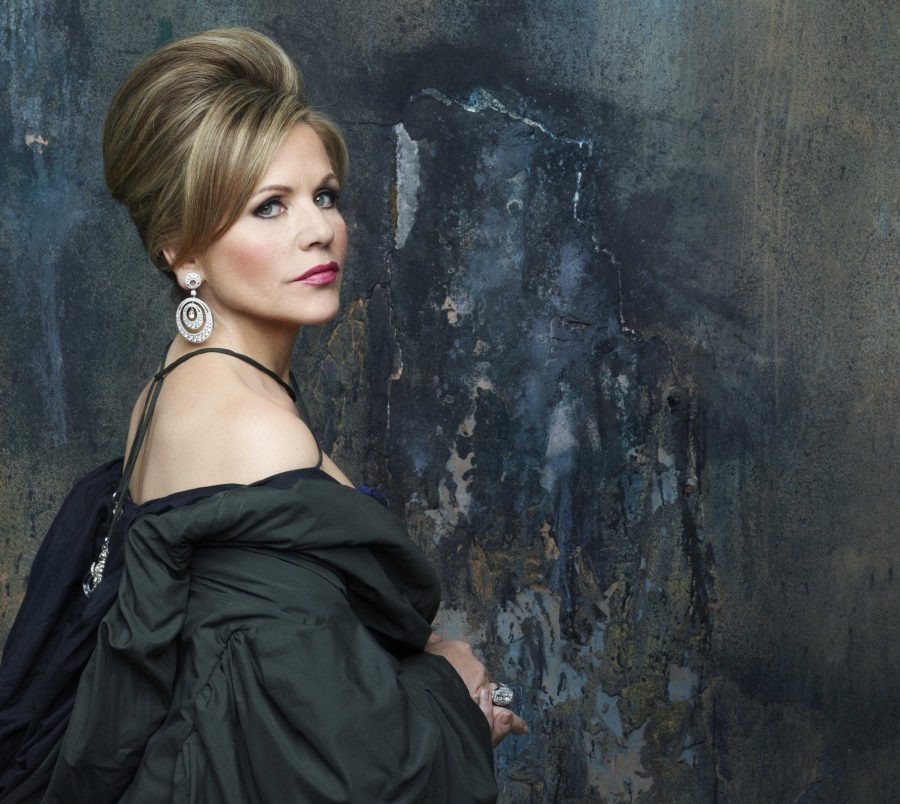On Oct. 8, America’s Queen of Opera,” Renée Fleming, performed at Hancher as part of a globe-trotting recital tour. The Daily Iowan took some time on the afternoon of Oct. 7 to ask the legendary singer a few questions about her prolific, and ever-evolving, career.
DI: What cemented your choice to pursue opera as a career path?
Renée Fleming: I can’t say it was such a choice, it was just the path I continued on. I tell my children this, too, you have to trust in your instincts and your future and just allow the doors to open. Some doors will close, but you can fight to reopen it again, or you can move on. I felt that was the best way to move through, and it worked.
DI: What special challenges face an opera singer during both preparation and performance?
Fleming: I think the most important thing to remind the audience of is that we are not amplified. We need to have so much power to project, strength and stamina, because operas are so long. It is really unusual type of work. The day of performance, I try to be as quiet as possible. The worst thing to do is be in a restaurant. Staying hydrated is important, but beyond that, I try not to do too much. I don’t want to be neurotic.
DI: How does emotional health factor into the strength of your voice?
Fleming: It takes an enormous amount of courage to do what we do. You’re alone, and it’s very much a performance, and people are judgmental about it. We’re judged not just by a yard but a yardstick that is 100 years old. You have to be in the right mental frame of mind. Most of what I do now is mental preparation, which is so much about acknowledging that you have a performance and making a connection to what that means. Preparation takes time and effort, and you want to be in a place when you’re performing where it’s almost channeling the work.
DI Do you feel as if your relatively — in the opera world — late start at 29 or 30 was in retrospect a benefit?
Fleming: It wasn’t as late at the time. I think now things are relatively skewed toward a youthful way, but for me, I think it was 10 times better. I had a couple years more training before I was under real pressure. It was the foundation of the artistic level that I wanted to be at. You don’t just have a talent, have a few voice lessons, then you’re a classical singer. You have to sound very authentic in foreign languages, which is a huge amount of training. You can’t wing it. But of course, when I was in my mid-20s, I was trying to get here as quickly as I could, but in retrospect, those extra years are a stroke of luck.
DI: How do you adopt the identity of your opera characters?
Fleming: Most of the characters we sing are from different centuries, and the situations they are in are extremely intense. I always say you can transfer your own emotional energy onto anything. I’ve played witches before, and I could have focused on her anger because of the pain she feels. You can always make a performance real for yourself.
DI: Can you think of any early performances that put your career on its trajectory?
Fleming: No, because every territory is different; the career trajectory for New York is different from the one for Paris. Everything is staggered.
DI: You once compared art songs — lieder, mélodie — to poetry. Can you elaborate on that connection?
Fleming: Poetry is so important, it’s the thing I’m very attracted to, also. And the composition, of course, can really enhance it. The combination of the two is what makes song recital truly magical. It’s the most intimate thing that we do and really terrific in that respect.
DI: Does grand opera sacrifice an intimacy with the crowd?
Fleming: There is nothing intimate about opera. It’s overblown, larger than life.
DI: Now that you’ve retired from opera, what’s next?
Fleming: I’m the creative consultant at the Lyric Opera in Chicago. It’s a fabulous opportunity to help with audience development and teaching students and outreach. It’s an exciting opportunity, and I’m just happy to be able to do it now.



